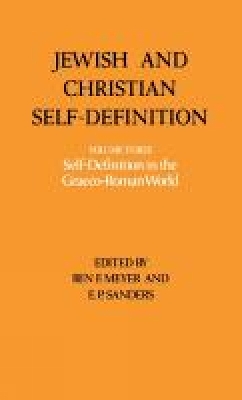The series which this volume continues is an exploration of the way in which both Judaism and Christianity moved towards normative self-definition in the first centuries of the common era. Neither willingly settled for pluralism, but each chose a normative approach which determined what set of suppositions, values and practices would henceforward inform the corporate life of the group. Judaism became Rabbinic and Christianity Catholic. The first two volumes looked at Christianity and Judaism respectively; the third volume approaches the question of self-definition in a rather different way. When Judaism and Christianity were moving towards the mature normativeness epitomized in the Mishnah and the rabbinate and the New Testament and the episcopate, were they moving with the general tide of Hellenistic and Roman history, or against it? Was the direction of their development typical or idiosyncratic? Was its explanation to be found in the sphere of comprehensive social causes? Are persuasive analogies to be found in the history of the institutions of the Graeco-Roman world or in the native tendencies of Judaism and Christianity? These questions are tackled here in a rich collection of essays, which brings the main stage of the study as a whole to a fitting climax. A fourth and concluding volume is in preparation. Contributors are: Hans Dieter Betz, G. W. Bowersock, Walter Burkert, John M. Dillon, Albert Henrichs, Howard C. Kee, Abraham J. Malherbe, John M. Rist, Tran tam Tinh and Heinrich von Staden.
- ISBN10 0334008220
- ISBN13 9780334008224
- Publish Date 2 August 2012 (first published 1 April 1980)
- Publish Status Active
- Publish Country GB
- Imprint SCM Press
- Format Hardcover
- Pages 316
- Language English
